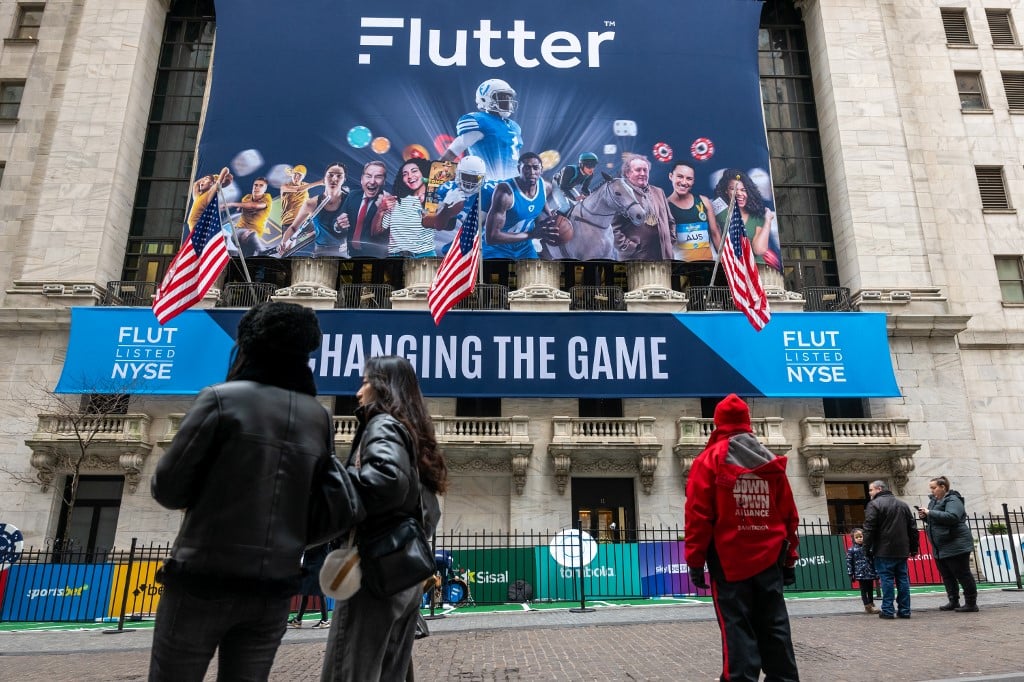
Flutter Entertainment, the parent company of industry-leading sportsbook FanDuel, predicted the mobile sports betting market will reach a whopping $63 billion by 2027, 50% higher than previous estimates.
Promising Future
There was plenty of optimism at Flutter’s Investor Day last week when the company not only projected the digital sports betting market would soar to $63 billion but also predicted its subsidiary, FanDuel, would capture an average hold (win rate) of 16% by 2030. Revenue guidance for the U.S. in 2027 showed a midpoint from existing states, where sports betting and iGaming products are currently legal, to be approximately $9.7 billion.
The good news sent Flutter’s stock price soaring to an all-time high of $240.36 on volume of more than 65% its average.
Despite FanDuel holding a market share of 46% in the domestic sports betting industry and 38% of the combined revenue share in the US sports betting and iGaming market, the company believes it has plenty of room to expand its footprint and its dominant position in the gaming industry.
“Our market share opportunity is still relatively small despite being the global leader in this space,” Flutter CEO Peter Jackson said.
Betting Big
FanDuel is not only the most popular sports betting app, but its hold has grown exponentially, leading to healthier profits. The gross gaming revenue margin has soared from 7% in 2020 to 12%, while its chief rival, DraftKings, saw a more moderate increase over that time from 6% to 9%. The average for the other mobile sportsbooks has declined from 8% to 7% during those four years.
“That’s really driven by our pricing accuracy, a better product, our mix of parlays continue to grow, a higher margin product, all of that is compounded by our scale advantage,” FanDuel CEO Howe said. “We’re still very much investing, but more of that is going into technology, trading sciences, and pricing accuracy.”
Market Expansion
The overall sports betting handle in the United States continues to grow because more states are legalizing mobile sports wagering. As of this moment, only seven states have approved the more lucrative iGaming, including New Jersey, Michigan, Pennsylvania, West Virginia, Connecticut, Delaware and most recently Rhode Island. However, that number is expected to climb as well, and that is where powerhouses like FanDuel and DraftKings see their revenues increasing.
By 2030, FanDuel projects that 80% of the US population will have access to legal sports betting, while 25% will see iGaming legalized within their state’s borders. Due to advanced technology and superior pricing models, holds will increase as well.
“In order to get to 80%, you have to get two of the three big states,” Howe said, referring to California, Florida and Texas. “We feel at some point it will happen, but we’re not going to put a date on [California].
“There’s a lot of hard work the team is gearing up to do to make sure we can legalize some of the biggest states in California and Texas,” Howe said. “We know we’re going to need a much more proactive public affairs strategy going forward. (…) As you can imagine, doing this effectively is going to require significant investment.”







